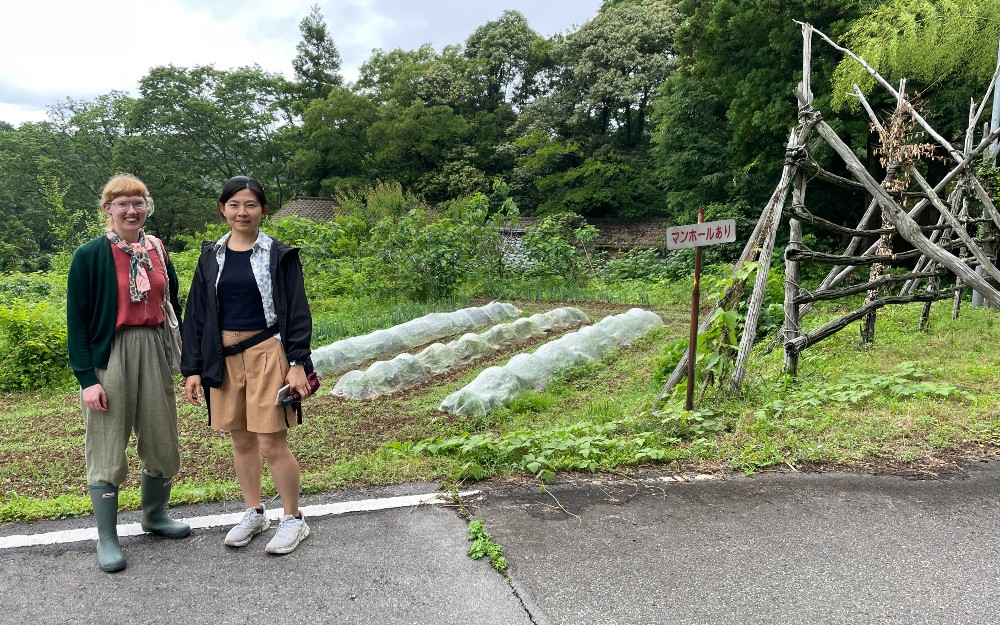We tried out a new format of activity at the XVII IASC Biennial Conference on Commons being held in Lima this week – multi-stakeholder dialogues (MSD). The activity requires a mix of at least two types of actor in relation to commons issues, usually practitioners and academics, but also policy makers, community activists or even the private sector. The aim is to bring commons scholars, practitioners and other actors closer together to focus on specific issues and learn from each other. On the opening day of the Conference three CCRI researchers (Dilshaad Bundhoo, Chris Short, John Powell) along with Kate Ashbrook (General Secretary of the Open Spaces Society) delivered an MSD entitled: ‘Negotiating a way towards consilience in managing conflicts over commons’, building on Dilshaad’s recent PhD work in Israel – “Developing a context-based framework for understanding interpersonal resilience”.

The objective of the workshop was to pave the way to build a multi-stakeholder discussion on how to enhance negotiations in conflict management over commons as well as build a network of researchers from multiple disciplinary horizons on the theme of Commons, Conflict and Consilience. Conflict is part of the dynamics of any socio-economic and ecological system that involves multiple stakeholders with varying agendas, understanding, and perceptions, and is inevitable where a resource is managed in common. Some form of conflict resolution process utilising participatory and deliberative processes are usually viewed as the means for resolving conflict. However, these are not always appropriate, or successful, particularly when stakeholders hold polarised positions and are less willing to enter into discussion. In some cases procedures are required that enable participants to get to a point where they can begin to consider negotiations that might lead to more constructive relationships and eventually conflict resolution. Issues of power imbalance, mis-trust, and differences in cultural values and perceptions must all be addressed in the determination of processes that will lead to a resilience in the interpersonal relationships between protagonists. Exploring where, how, and under what circumstances consilience can be achieved in relation to commons resource management was the focus of the dialogue.

The dialogue was well attended with around 40 participants – professional and academic – from a wide range of disciplines and geographic locations. The proceedings started with a series of presentations by a panel of speakers (see below), and followed up with group discussion to identify barriers preventing negotiation and potential drivers pushing people to engage in negotiation, based on participant’s experiences of conflict situations.
Dilshaad Bundhoo started the dialogue by providing an overview of the consilience concept and multi-stakeholder perspectives. Several papers focused on water conflicts, a key resource the world over. Panellists from different parts of the world (Chile, Colombia, Ghana, India, UK) then presented case studies identifying key aspects of conflicts over water and access rights to commons.
The panel consisted of the following presenters:
| Panel Speaker | Affiliation & Country | Title |
| Dr Dilshaad Bundhoo | CCRI, UK | Negotiating a way towards consilience in managing conflicts over commons |
| Dr Bryan Bruns | Independent Researcher, USA |
Groundwater Consilience: Common Knowledge and Shared Strategies for an Invisible Commons |
| Dr Everisto Mapedza | IWMI, Ghana | Conflicts over water in Africa – selected case studies |
| Dr Stephanye Zarama Alvarado | PhD student, University of Massachusetts USA (Colombia) | Water conflicts in Colombia |
| Elisa Blanco | PhD Student, Agricultural Economics Department PUC (Peru) |
Collective water management in Chile: The case of Copiapó |
| Kate Ashbrook | Open Spaces Society, UK | Conflict on the Commons – using legislation to resolve access issues |
| Rashmi Mahajan | PhD Student, Ashoka Trust for Research in Ecology and the Environment (ATREE), India | Community-based water management of irrigation tanks in Eastern Vidarbha region, Central India |




